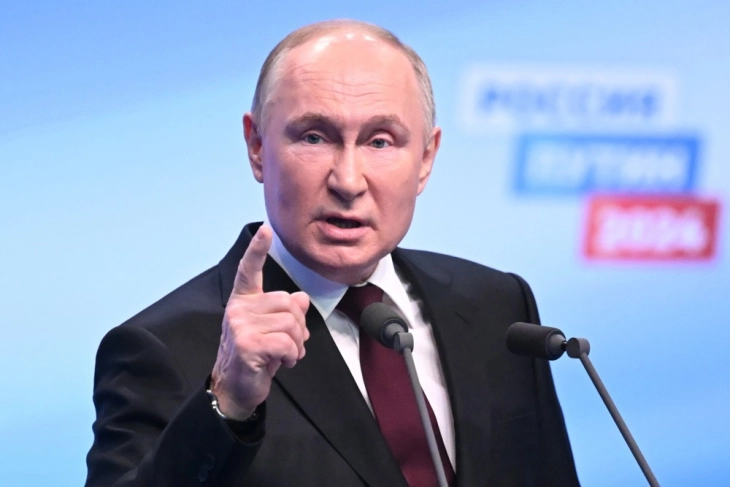Following a presidential election riddled with allegations of manipulation, Russia’s Election Commission has bestowed upon Kremlin leader Vladimir Putin an unprecedented outcome, just shy of 88% of the votes.
Ella Pamfilova, Chair of the commission, disclosed this on Sunday evening after tallying nearly a quarter of the ballots.
Russian state television proclaimed Putin, aged 71, as the victor on Sunday, based on multiple voter surveys. Forecasts following the closure of polling stations on Sunday indicated 87%, as reported by state media.
This potential 88% would mark a record for Putin, surpassing the 76.7% he garnered in the previous presidential election in 2018.
No authentic opposition candidates were permitted to participate in the three-day vote.
International observers did not oversee the election spanning across 11 time zones in the vast country. The voting process was met with numerous protests by thousands of adversaries.
Meaningful results are expected on Monday, historically aligning with the forecasts.
Despite authorities’ attempts at intimidation, Sunday’s voting saw anti-Putin demonstrators rallying at voting locations at precisely noon, signaling opposition to the Kremlin stalwart, who has dominated Russian politics for almost a quarter-century.
The electoral commission reported turnout surpassing 70% of the 114 million electorate on Sunday afternoon, a potential record. However, independent observers alleged systematic fraud behind this high turnout.
In Berlin, Yulia Navalnaya, widow of the late opposition figure Alexei Navalny, cast her vote at the Russian embassy on Unter den Linden Sunday.
President Volodymyr Zelensky of Ukraine denounced the election fraud, asserting its lack of legitimacy and calling for accountability, labeling Putin’s rule as tyrannical and power-hungry.
Experts in electoral law, both in Russia and abroad, have criticized the conditions of the vote, deeming it neither free nor fair, with exclusion of opposition figures and the sanctioned candidates viewed as loyal to the Kremlin.
The Kremlin orchestrated the election to portray widespread trust in Putin and bolster support for his conflict with Ukraine.
Midday protests were met with police crackdowns, resulting in dozens of arrests, particularly in Kazan, Moscow, and St Petersburg, as authorities warned against participation, labeling it as extremist activity.
Supporters of Alexei Navalny, including opposition politician Boris Nadezhdin, who was barred from challenging Putin, made their presence felt despite restrictions.
Navalny’s supporters paid respects at his grave in Moscow on the final day of elections.
Amid accusations of Kremlin involvement, protests erupted globally, including by anti-Putin Russian activists abroad.
Reports suggest coercion tactics to compel citizen participation within Russia, while internationally, criticism mounts over holding the faux election in occupied Ukrainian territories, deemed illegal annexations by Russia.





Comments are closed for this post.